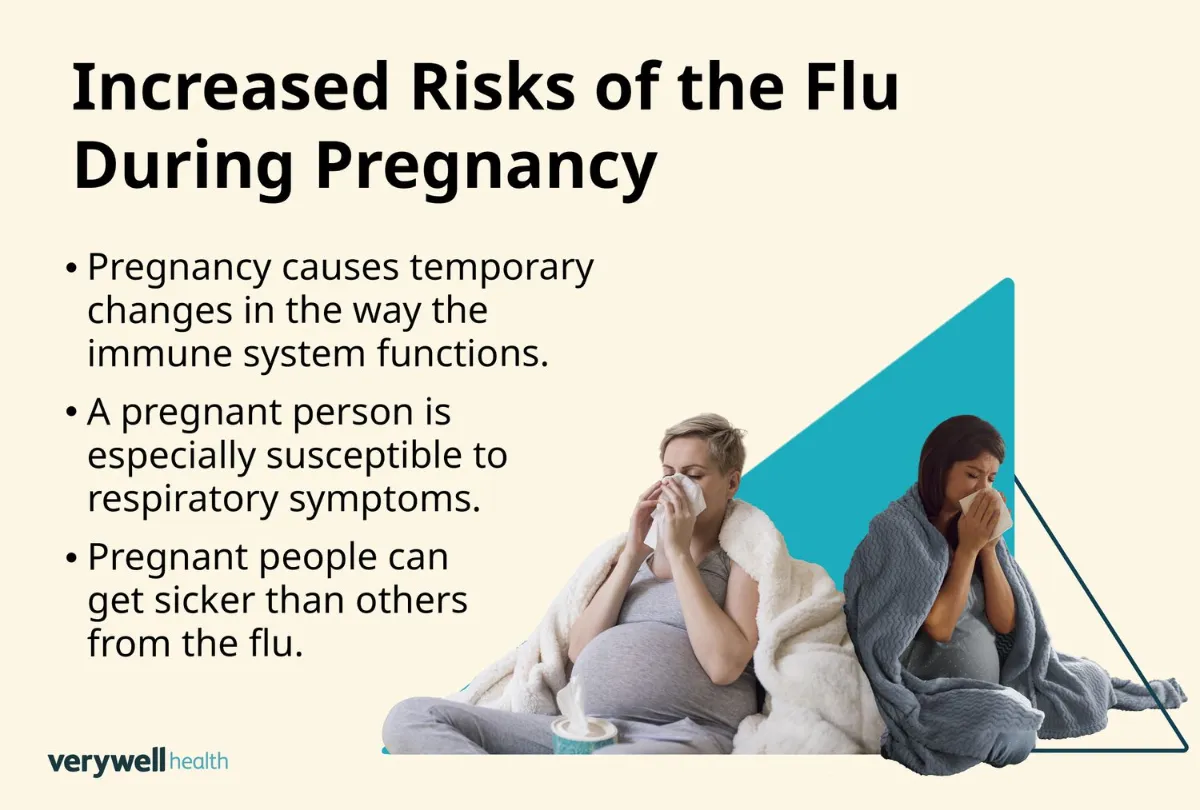Pregnancy is a special time, but it also means you need to take extra care of your health. One common illness to watch out for is the flu, especially Influenza A, which is the most common type of flu. Getting the flu while pregnant can be more serious than usual, so it’s important to protect yourself and your baby. Here’s everything you need to know about the flu during pregnancy.
What Is Influenza A?
Influenza (the flu) is caused by viruses, and there are four main types: A, B, C, and D. Influenza A is the most common type, making up about 77% of flu cases in 2023. This is the type you’re most likely to catch during pregnancy.
The flu vaccine is updated every year to fight the most common flu viruses, including Influenza A. Since this type is so common, it’s especially important to get vaccinated if you’re pregnant.
Symptoms of Influenza A During Pregnancy
The flu can hit you hard, and symptoms often come on suddenly. Here’s what to look out for:
- Fever (100.4°F or higher) – but you can still have the flu without a fever.
- Chills
- Sore throat
- Cough
- Stuffy or runny nose
- Body or muscle aches
- Headache
- Extreme tiredness
- Vomiting or diarrhea (less common)
If you notice these symptoms, contact your doctor right away.
Risks of the Flu During Pregnancy
Pregnancy changes your body, including your immune system, making it easier for you to get sick. The flu can also lead to serious complications for both you and your baby.
Risks for You
- Higher chance of being hospitalized
- Increased risk of preterm labor (before 37 weeks)
- Rarely, severe cases can be life-threatening
Risks for Your Baby
- High fever during pregnancy may lead to birth defects, like heart problems or neural tube issues.
- Increased risk of preterm birth.
How to Prevent the Flu During Pregnancy
The best way to protect yourself and your baby is to get a flu shot. Here’s why:
- The flu shot is safe during pregnancy and recommended by the CDC.
- It protects you from severe illness and reduces the risk of hospitalization.
- It also protects your baby after birth. The antibodies you develop from the vaccine can pass to your baby through the placenta and breast milk.
Important Notes About the Flu Vaccine
- Do NOT get the nasal spray vaccine (it contains a live virus and isn’t safe during pregnancy).
- If you have allergies (especially to eggs or previous flu shots), talk to your doctor before getting vaccinated.
Is the Flu Shot Safe During Pregnancy?
Yes! The flu shot is safe for pregnant women. It uses an inactive virus, so it won’t give you the flu. The nasal spray vaccine, however, is not recommended during pregnancy because it contains a live virus.
How Is the Flu Diagnosed During Pregnancy?
Doctors usually diagnose the flu based on your symptoms, but they may also use tests like:
- Rapid flu tests (results in 10–15 minutes)
- Swab tests (sent to a lab for analysis)
If you think you have the flu, see your doctor as soon as possible.
Treating the Flu During Pregnancy
If you get the flu while pregnant, there are ways to manage it safely.
Home Remedies
- Rest as much as possible.
- Drink plenty of fluids (water, herbal teas, broths).
- Use over-the-counter medications like acetaminophen (Tylenol) to reduce fever and aches. Always check with your doctor before taking any medication.
Prescription Medications
- Antiviral drugs like Tamiflu or Relenza are safe during pregnancy and can help reduce the severity of the flu.
- These work best if taken within 2 days of your first symptoms, so don’t wait to see your doctor.
What to Avoid When Treating the Flu
Not all medications are safe during pregnancy. Avoid:
- Ibuprofen (Advil) or aspirin unless your doctor says it’s okay.
- Over-the-counter cold and flu medicines without checking with your doctor first.
Key Takeaways
- Influenza A is the most common type of flu and can be serious during pregnancy.
- Get a flu shot – it’s the best way to protect yourself and your baby.
- If you get the flu, see your doctor right away. Antiviral medications can help if taken early.
- Rest, stay hydrated, and avoid unsafe medications.
Final Thoughts
The flu can be more dangerous during pregnancy, but you can take steps to stay healthy. Getting a flu shot is the most important thing you can do to protect yourself and your baby. If you have any symptoms of the flu, don’t wait – contact your doctor immediately. Taking care of yourself means taking care of your baby too!

